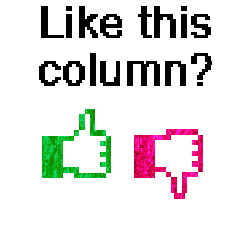Get out of my Face(book)!
23 June 2010 | Columns, Non-fiction, Tales of a journalist
 Much is made of the importance of Facebook and the other social media. But what are they, asks journalist and self-confessed internet cynic Jyrki Lehtola in his regular ‘Journalist’s Tales’ column; and, more important, is there any point to them?
Much is made of the importance of Facebook and the other social media. But what are they, asks journalist and self-confessed internet cynic Jyrki Lehtola in his regular ‘Journalist’s Tales’ column; and, more important, is there any point to them?
This journal and this text appear only on the internet, and you can comment upon the elegant style of this text, as well as its fascinating content, at the bottom of the piece. If worst comes to worst, the apathy it arouses can even give rise to debate.
Does all that mean that I’m a part of… the social media? And if so, could someone tell me what social media mean and how I can get out of here?
![]()
The online encyclopedia Wikipedia defines social media as follows: ‘Social media mean web-based communication environments in which each user or user group has the opportunity to be an active communicator and content-producer. In social media, therefore, communication takes place between many and many, in other words the distinction between communicator and recipient characteristic of the traditional mass media is absent. Social media are a post-industrial phenomenon which has changed society’s production and distribution structure, economy and culture.’
Wow! ‘Changed society’s production and distribution structure, economy and culture’! Not bad!
There is no longer any reason to wonder why the whole world is currently careering from one economic crisis to the next. If society’s production and distribution structure, economy and culture change on the basis that someone on Facebook just said they liked summer, as a result of which 12 people pressed the ‘like’ button, society’s production and distribution structure, economy and culture are on a shakier base even than we had supposed.
![]()
Social media are today’s holy dogma; among the few things that arouses a whole heap of aggressive, pathological feelings in lonely people without enough to do.
I’ve been writing variably attitudinous columns and articles for Finnish publications for a couple of decades, but it is only my writing concerning social media that still provokes the kind of expressions of hatred and rage that warmed my soul more regularly a decade ago.
Rage is easy to understand, since when the theory and practice of social media meet, the result is not always a pretty sight.
Social media are divided into two castes. The most visible and audible group are the theoreticians; those figures in university and commerce who found salvation for their careers in social media.
Because no one really knows what social media are or how they can be exploited in one’s own work, they have given rise to a need to lecture. That is why the first group mentioned above tour the universities and businesses of Finland and the world lecturing on the redemptive message of social media. Like most of the lectures at this level, they are characterised more by abstract idealism than concrete suggestions, all of which could be condensed into the following suggestion: Join Facebook.
Whether the client is a business, a parliamentary candidate or a public charity, the advice is always the same: Join Facebook.
Social media’s second caste is its users. They are people with too much time. They write blogs full of crochet patterns, racist opinions and complaints about what’s wrong since they don’t find anything amusing. For them, social media are a cheap and well-founded way of avoiding a weekly therapy session.
The problem is the same as it always is when theory and practice collide: practice causes theory disappointment. It is quite simply hard to derive great visions on the basis of the simple fact that someone announces on Facebook that he likes doughtnuts, and that fifteen people ‘liked’ that kind of status definition. That is why social media idealism is too easy for someone like me to laugh at, and that is way it is much too easy to be enraged by such laughter.
![]()
Perhaps one should be a little more realistic in one’s definition of social media? Something like this, for example:
Social media is a flattering concept that covers everything for which the concept of social media is used. Social media is a joint term for the gathering together of diary entries which no one wanted to read in the first place.
Social media are an argument for why, in mass media communication, the communicator is distinguished from the receiver. Social media are what happened when you got to know yourself and understood that you never wanted to spend another moment in your own company.
Social media are either the moment when you are waiting for life to begin, or the moment when you no longer wish to deal with the life that once began.
Social media is a group of people who differ strongly as to how to define social media.
Translated by Hildi Hawkins
Tags: media
No comments for this entry yet
